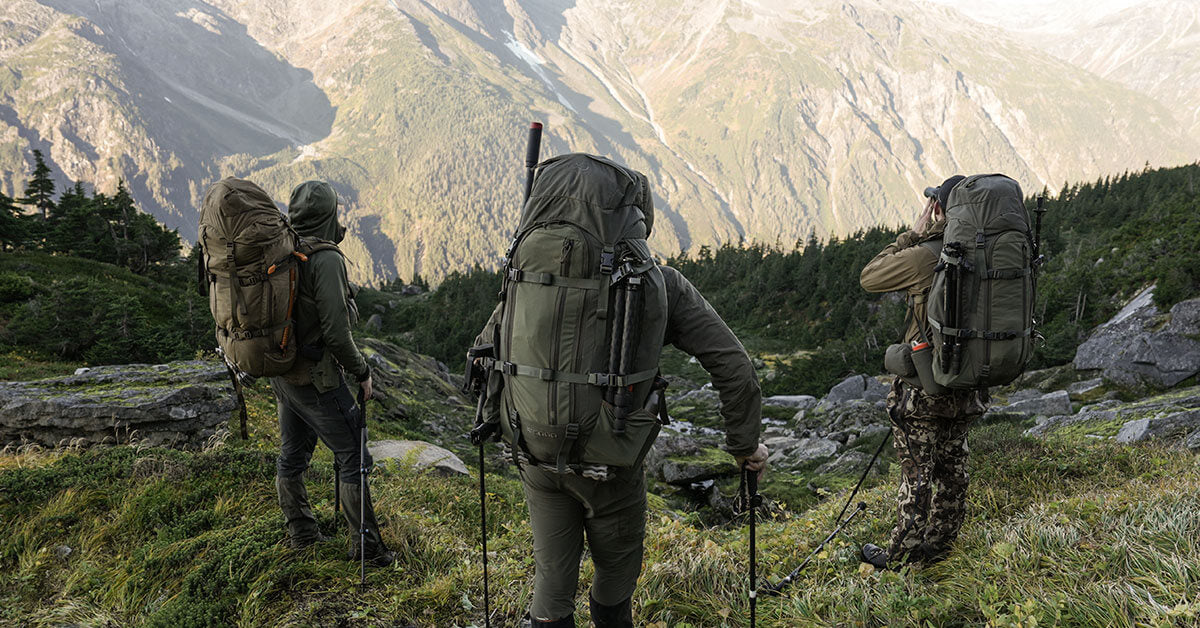RockAndSage
WKR
Thanks so much for this thoughtful response.
I can tell you that for the last 5 or 6 months I have been going through a very similar process as it sounds like you went through in terms of Form's "data" and my own beliefs.
My first reaction upon listening to Form's first podcast with the Exo Mtn Gear guys was to call B.S. and be defensive.
I've written this before, but if what Form stated in that podcast about the "toughness" of penetrating a large bull elk or Alaska moose is correct, it literally wipes out 70 years of commonly held "best practices" for hunting rifle cartridge and bullet selection; and essentially makes hundreds of Guides, PHs and hunting journalists flat-out-wrong. Frankly, that still makes me skeptical. Hence the question regarding African dangerous game and Grizzly defense guns. Could all of us have gotten things so wrong as to be sending African PHs into the bush with the wrong bullet in the wrong caliber rifle?
I even shot off a shitty email to Mark basically accusing him of joining a cult. (little did I know about the cult of Rokslide!) But I had grown to appreciate Mark and Steve's podcast because of their scientific and level headed approach to all things hunting..... and after listening through the podcasts a second time I stopped a .308 Win. build I was in the middle of and ordered a 6.5 CM proof barrel instead.
While I will remain a healthy skeptic, Form and his minions have profoundly changed my approach to becoming a better, more humane and more successful hunter. And for that I am really, really grateful.
Sounds like I'm not the only one on this kind of journey.
Regarding African dangerous game guns and cartridges, it's a great question that I've wondered about quite a bit myself. I'm definitely a cartridge geek, and personally love big-bore guns. But I've also questioned different parts of the inherited wisdom about them at times.
Here are a couple of points that come to mind...
The first is that many of the "stopping cartridges" still used today, were invented during the black powder era - things like .577 Nitro Express, etc. Their designs were excellent for the task, with the propellants and bullet tech of the era. It was proven to work. Why change what works, right? Especially now if it works better, with smokeless powder!!
From there, you also get human factors cementing those cartridge ideas in place - the extreme money needed, with upper-class Brits leading the cultural charge of what "hunting Africa" entailed, combined with the romanticization of it all through hunting memoirs and fiction. That gets you to some form of culturally dictated..."One simply does not hunt the dangerous game of the dark continent without a proper large bore double-rifle, ol' boy. It would be quite unseemly." Culturally, large-bore gets hardwired, and the more expensive the gun, the better the hunt. At least until Hemingway and other writers got Americans more interested in the 1950s, and the plebian mass-produced guns we'd bring with us, while still pining away for a Westly Richards in .500 Nitro Express.
Combined though, I suspect you essentially have PHs mostly going with what they know has proven to work on dangerous game - mostly just grandfathered in, with little to no interest in risking their lives in a very real way to test small-caliber themselves. Those norms get advised to clients, and many of those clients come with their own big-bores out of a combination of inherited wisdom and romanticization of an Africa hunt. PH norms may change if they observe enough small-caliber success from their clients, over time...but likely only from the comfort of having a big-bore double rifle in their hands as a "stopping gun", while they observe.
There's also the seemingly genetically hardwired human behavior of tying how big your weapon is with how mighty and manly you are as a person. Which is absolutely playing a part here in why people push back with such emotional violence against Form's small-caliber truths - it's hitting them in the man-card. A man uses a proper man's gun, not a women's and kids' cartridge, right?
Keep in mind - Form is not the first person to advocate small-caliber. An Africa hunter named Walter Bell killed over 1100 elephants with 6.5 and 7mm cartridges - and was absolutely meticulous in analyzing and documenting the results of that performance when cutting into his game animals. His most emphatic points revolved around the importance of shot placement. But he also noted that .303s and other small caliber guns would often kill just as fast as big bores when the bullets went in the same place.

